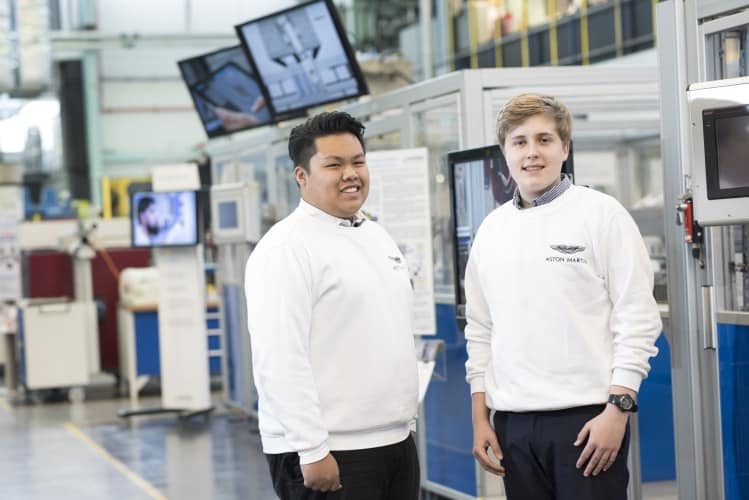Breaking the mould and shaping the future at Aston Martin
While many of the UK’s freshers enjoyed a summer off, William Savage and Gian Sebastian were at work – for Aston Martin. Not only are the two 18-year-olds among the very first cohort of grads from the WMG Academy for Young Engineers in Coventry, they are now two of the first Aston Martin employees to be signed up for the Applied Engineering Programme (AEP), delivered by WMG at the University of Warwick.
Apprenticeships are nothing new for Aston Martin. Will and Gian are two of 16 recruited this year and part of the total of 45 apprentices currently working for the luxury carmaker. It’s a coveted role - the apprentices are chosen from hundreds of applicants through a process of selection days, assessments, interviews and presentations.

But sending employees back to university on the AEP is a new endeavour for the OEM. Just as they are settling into their new jobs, Will and Gian, along with two other Aston Martin employees, have also begun their studies to hopefully gain their BEng in four years’ time.
“This year, six of the students we recruited came from the WMG Academy, and two of them – Will and Gian – were selected for our CAD Body Engineering department where they are on a fully sponsored AEP through WMG at the University of Warwick<” said Karen Botting, senior manager for learning and development at Aston Martin.
Register now to continue reading
Thanks for visiting The Engineer. You’ve now reached your monthly limit of premium content. Register for free to unlock unlimited access to all of our premium content, as well as the latest technology news, industry opinion and special reports.
Benefits of registering
-
In-depth insights and coverage of key emerging trends
-
Unrestricted access to special reports throughout the year
-
Daily technology news delivered straight to your inbox










UK Enters ‘Golden Age of Nuclear’
The delay (nearly 8 years) in getting approval for the Rolls-Royce SMR is most worrying. Signifies a torpid and expensive system that is quite onerous...